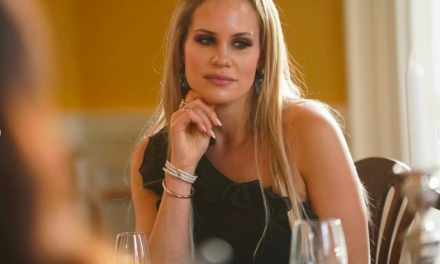
Just after
the loss of a spouse, we are often absolutely certain that we will never be
happy again. Even if it felt remotely possible, being happy again would feel
like an insult to our beloved. Fully immersed in the darkness of grief, it is
hard to think about the future or what it might bring.
For a younger
widow, comments like, “You’ve got your whole life ahead of you,” are paralyzing
and frightening. The possibility of happiness is nowhere on the radar. But even
if you’re in your 60s, 70s, or beyond, the loss of a spouse can put a stop to daily
activities and bring depression.
Different You, Different Happy
Will you be
happy again? Yes, but it will be a different version of you who will be
differently happy. The you that was happily part of a couple, the you who knew
happiness as a spouse, does not exist now.
That former
version of happy you once enjoyed has unfortunately reached its expiration
date. Which, in a way, honors your spouse, the time you spent together, and who
you were as a couple.
The two of
you – unique individuals who came together to form a unique couple – can never be reproduced. You can choose to see this as a good
thing, as it sets that relationship in a place of honor – precious and irreplaceable.
That version
of you is a thing of the past for another reason. That version of you didn’t
yet know the death of your spouse.
That version had never been plunged into complete darkness, never experienced soul-shattering sadness, never felt the incredible weight of grief perched on the chest, making it impossible to draw a deep breath.
That version
of you perhaps didn’t know the value of every precious moment, and how quickly
everything can change. That version of you may have been so busy pleasing
others that she didn’t make time for what mattered most.
Perhaps she
let life’s little annoyances get in the way. Maybe work took precedence over
relationships. Perhaps she wasn’t fully present in her own life.
Maybe now you
wouldn’t even recognize that former version of you. And for good reason,
because she is no more. She stopped existing the day her world stopped turning.
And in the very next moment, a new version began forming.
Transforming in the Darkness
The formation
of the new you is a messy, unpredictable, and painful process. The age-old
advice, “don’t make any major decisions while grieving,” comes at a time when
you are required to make constant decisions.
You struggle
with identity, guilt, self-doubt, self-judgement, and insecurity while the people
around you offer well-intended yet unhelpful things.
You can’t
read even a short paragraph and understand it, yet you must get back to work. In
your free time, you must figure out how to survive on one income and identify
what foods you can actually digest, all while willing your heart to beat.
The
microscopic bit of energy you might feel in the morning is long gone by noon,
and the grief train seems to come out of nowhere and mow you down at
unpredictable and inconvenient times.
You navigate
your year of firsts with equal amounts of dread and sadness, and you realize
that every single holiday comes with an extra dose of sorrow because of your
associated memories and traditions.
All the while,
the only certainty (aside from knowing you’ll never feel happiness again) is
that you’re screwing everything up, including – and especially – your kids.
Then one day
you realize that the current version of you is who she is because of that
messy, painful, uncertain time. In sheer darkness, she was shaped into a new
being. Not in spite of grief, but because of it.
You, the Dragonfly
Did you know
that dragonflies spend the early part of their lives crawling around in the
darkness of ponds? Only once they’ve grown enough do they transform, spread
their wings, and fly.
The dragonfly version of you is also transformed in darkness. This version knows the power of being present in each moment. She is a careful editor of what she allows in her life, of what consumes her energy.
She
prioritizes herself and her family, because she left the people-pleasing habit
behind in her old life. She doesn’t allow herself to be affected by life’s
little annoyances, because by comparison to the day her world stopped turning,
there aren’t many bad days.
When sadness
comes, she’s brave enough to feel that feeling rather than run from it. She
knows that she can do anything because she’s been through the unimaginable. She
survived, and now she is ready to thrive.
6 Tips for the Journey
- Recognize your former self for
having done her best and forgive her for her shortcomings. - Know that how messy the journey
looks and feels is not a predictor of how well it will all turn out. - Don’t spend your energy arguing
with reality, instead play the hand you were dealt with gusto. - Get your perspective in view – if
you can survive the darkest of days, you can navigate today’s tough times as
well. - Journal your thoughts and decide
which are serving you (would you speak to your best friend in the same way?)
and delete the rest. - Hold your beliefs into the light
and decide if they are your own and if they are true today. Determine whether
they serve you today and the person you are becoming.
Let’s Have a Conversation:
Which event
in your life marked the end of the old you? Do you agree that loss creates a
divide between your former self and current self? What does your dragonfly transformation
look like? Is happiness possible again after the loss of a spouse? Please share
with our community!





